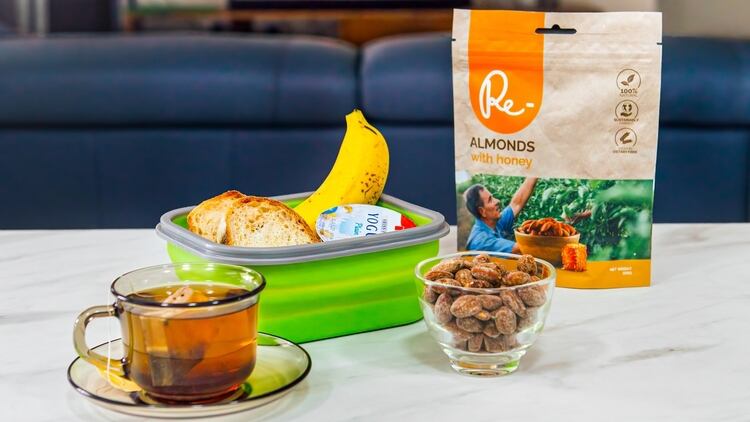It is a known fact that Vietnam has amongst the fastest-growing economies in the South East Asia region, with many overseas companies looking for ways to penetrate the market, boosting job opportunities and incomes locally.
Along with this growth in incomes and economies, food products that were once considered more of a luxury or premium specialty are slowly becoming more common to local consumers – and one of these is products made from nuts.
“In Vietnam today, the trend is undoubtedly nuts and products from nuts, no matter whether it is granola or powders or milks, Vietnamese consumers are very much on the lookout for nut-based items in these categories,” local oil and spreads firm Dat Foods’ Founder and CEO Bùi Thăng Long told FoodNavigator-Asia.
“This has been on the rise as Vietnam’s economy is getting better and average incomes are becoming higher, so more consumers are now showing more care for their health and believe that nut-based products are good both nutritionally and functionally.
“As it is, many brands are choosing to use ‘nuts’ as a keyword in their marketing, even if their products only contain very little nuts or no more than 20% because the concept of nuts is such a big draw for the consumers – this remains the biggest challenge in the Vietnamese market for real nut product brands as consumers don’t know the difference yet, so education is critical.”
Although the category is growing rapidly, at present it is still not yet anywhere achieving mainstream status as economic growth has not reached sufficient levels to enable locals to consume nut-based products as a daily staple – but Long is hopeful that this can be achieved in the coming decade.
“The way Vietnamese consumers eat nut products such as nut butter or nut oils is still very different from the West and we can see this from our sales, e.g. a 570g bottle of cashew butter can last one small western family perhaps one or two weeks, but a 210g bottle would last one Vietnamese family over a month,” he said.
“So the behaviour of using this nut butter is still very different, where western consumers would spread this daily on their bread for breakfast, but local consumers would be much more sparing and maybe only eat this once or twice a week as a treat.
“This is definitely strongly driven by income, showing that even though the economy has improved, consumer salaries are still not yet significant enough such that they can afford to eat nutritious products like this daily.
“That said, I do expect that this situation will change in the coming five to 10 years – my children’s generation for example has grown up with much more exposure to nut butters and are used to this, and as the economy continues to grow, by the time they reach adulthood nut products will be much more mainstream.
“A good example of this is cheese – not that long ago, cheese was by no means a popular product here in Vietnam due to the price and lack of awareness then, but as the economy has grown and more companies have been bringing in cheese products and doing the necessary education, now cheese is a very popular item locally.”
Nut oil’s major potential
Dat Foods manufactures both nut butters and nut oils, and Long believes that nut oils are a major potential growth avenue for the company due to huge demand in the region.
“The entire South East Asian region, not just Vietnam, uses a lot of oil, as do Japan and South Korea, so there is really a very big market for this,” he said.
“We also see that there is a demand for healthier versions of oils and worked to innovate in this direction, so all of our peanut and sesame oils are tested and certified chemical-free and cold-pressed below 60°C to keep the nutritional content higher than normal oils – it makes for higher costs and lower yields, but the nutrition is superior.
“In Vietnam, peanut oil is very common for cooking and sesame oil for salads, and one tablespoon of sesame oil is also often given as a supplementary aid to children as it is high in antioxidants and has strong anti-inflammatory properties.”
Although oil is mostly a supplementary commodity used to prepare foods with, Long stressed that even in this category the future is likely to be focused on health benefits.
“The future of oils will also be nutrition-focused as consumers increase focus on health and wellness,” he said.
“Nut oils are a very good fit for this demand, but right now, the same challenge applies for oils as it does for butters where some companies are using nuts as a keyword to draw consumers in even with very minimal nut oil content, so education is going to be very important.”




